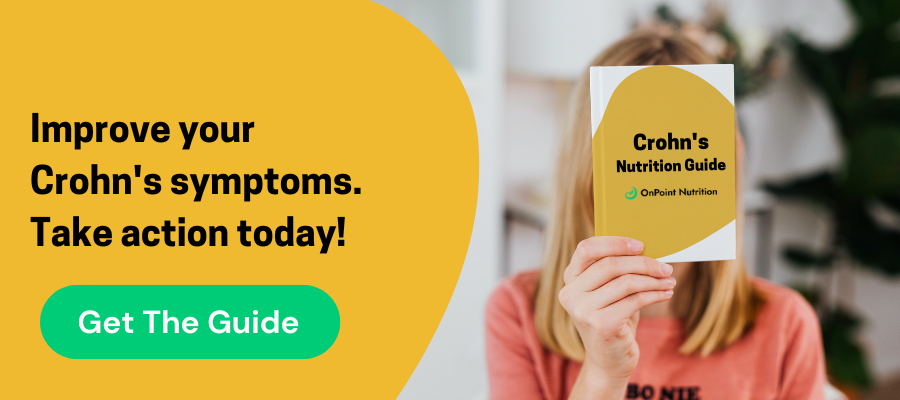
A Crohn’s disease diagnosis can be overwhelming and confusing at first. You may find yourself with a lot of questions. But the real question is, where do you find credible answers? The good news is, we’ve asked the experts to weigh in on the most frequently asked questions about Crohn’s. Read more about what our dietitian’s had to say below.
Q: Can you die from Crohn’s Disease?
A: You are very unlikely to die from Crohn’s disease itself. However, it is possible to develop Crohn’s-related complications, which have serious health risks. These complications are more likely to arise if you don’t manage your Crohn’s properly over a long period of time.
Some examples of life-threatening complications include colorectal cancer, fistulas (holes in intestinal walls that form abnormal passageways from one organ to another), bowel obstruction, and colon perforations.
Q: How is Crohn’s disease diagnosed?
A: The most common diagnostic tools used for Crohn’s disease are blood tests, stool studies, and colonoscopy. Your doctor will most likely perform multiple tests to confirm the diagnosis. For example, while blood tests do not definitively confirm Crohn’s Disease, they can indicate signs of anemia, which is a common condition for people with Crohn’s.
The colonoscopy is usually the method used to confirm Crohn’s. During a colonoscopy, your doctor will be able to view your entire colon using a thin, flexible tube with a camera attached. During this procedure, they can also take small samples of tissue (biopsy) to analyze for inflammatory cells.
Q: What Triggers Crohn’s disease?
A: The exact cause of Crohn’s is still unknown, but many studies point to heredity and/or malfunctioning immune systems contributing to its symptoms. After Crohn’s is present, there are many different things that can trigger your symptoms. These foods include alcohol, high fat foods, carbonated beverages, caffeine, dairy products, and foods that are very high in fiber.
Q: What is the life expectancy of someone with Crohn’s disease?
A: When Crohn’s is well-managed, people enjoy normal life expectancy with a high quality of life! We recommend taking actionable steps to ensure your Crohn’s remains well treated. Treatment normally involves enlisting the help of professionals like your doctor to manage potential medications and a registered dietitian to help with dietary recommendations.
Q: Can you live with Crohn’s without medication?
A: For the most effective treatment of Crohn’s, many people will need to take medication long term. Quitting your medication can bring you out of remission and cause a symptom flare up. Flare ups can be dangerous, as chronic inflammation can lead to permanent GI tract damage or possible complications. There are, however, many dietary changes that you can make to reduce the overall inflammation in your gut. Proper diet reduces the amount and number of medications that you may need to take.
The bottom line is, a Crohn’s diagnosis is serious and it’s important to obtain reliable answers to your questions. Work together with your healthcare team to put together the best treatment plan for you. If you are overwhelmed or feel like you need help managing your condition, consider meeting with a dietitian. Dietary management is an integral piece of managing Crohn’s.
To learn more about our approach to Crohn’s management, click here.
Topics

Kaitlyn Willwerth is a Registered Dietitian at OnPoint Nutrition. Kaitlyn's work focuses on providing individualized health and lifestyle coaching and, most importantly, support. She is a Certified LEAP Therapist and has also completed the Monash University 'Low FODMAP Diet for IBS' online training course for health professionals.




